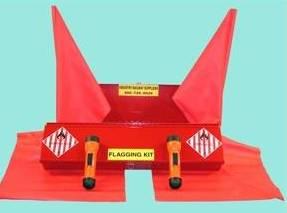Originally Posted by Gregg:
Railroad question on braking.....Do engineers still power brake going down long grades with full tonnage trains.... Minimum brake reduction just before downgrade and use the throttle to ease off of or actually pull the train.... None of the engines I worked on had dynamic brakes. I guess steamers would let'em drift down hill to save steam.
Is a good pass hogger coming out of the brakes or applying brakes at a station stop. Just the last few seconds before actually stopping ?
Well, when dynamic braking is available, all the big railroads require it to be the primary method of slowing a train. On descending grades, I never knew of an Engineer who would not use it, as it is much less work that doing it all with air braking. These days, event recorders download by radio into a database that scans each of them and prints a list of exceptions. Deep brake pipe reductions are exceptions, so the Road Foreman has to examine the data and investigate whether the Engineer was grandstanding or just had to stop quickly for other reasons. Stretch braking is also an exception, though roads such as CN that have a number of non-DB equipped engines may treat that differently. If you have no dynamic brake on the engine, you should stretch brake in most cases. Drifting is risky if there is undulation and you have a long train. Also, too much use of engine brakes has been found to cause thermal wheel cracks, so it is best to plan ahead and only minimally use engine brakes.
In passenger service, as you are aware, the brakes can be graduated off, partially or completely, as opposed to freight service where any increase in brake pipe pressure releases all brakes. When stopping the brakes should be gradually released so that, at the moment of stop, braking is minimal and the stop is smooth. However, once the train stops, a 15 psi reduction should then be made at once to be sure the brakes remain applied during the stop. I always kept the throttle in Run-1 to gently tug as the train stopped. With the F7's and F3's, you did not go below Run-1 when reducing throttle coming into a station. You wanted the engine to remain in parallel. It would shift back to series if you shut off and then advanced the throttle, or if you pulled too hard it would make automatic backward transition. (E-units would not make automatic backward transition, but F-units would, so the throttle handling could be done differently with E-units.)
Finesse is better than brutality in passenger train handling. On freight, yes, it is advisable to be making a brake pipe reduction as the train is coming to a stop. On passenger, no.






